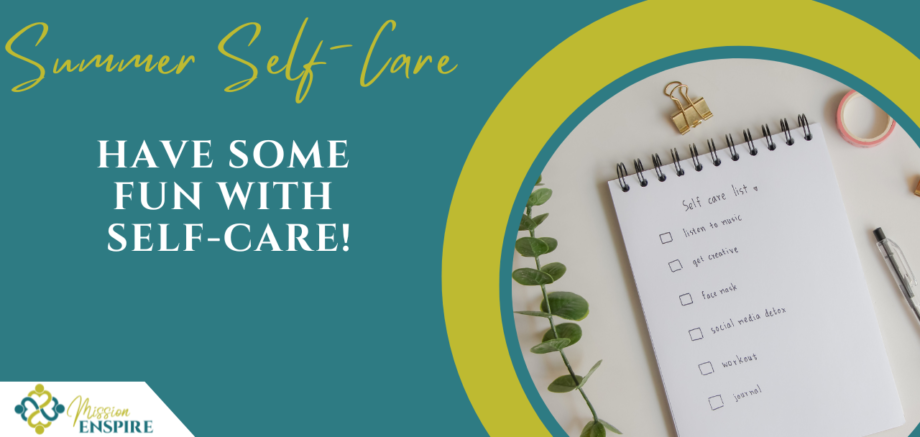We live in a busy world. “Adulting” has become a slang term for being responsible and taking care of long lists of daily chores including working, raising families, maintaining friendships, and a healthy marriage. That doesn’t leave a lot of free time. When there is a bit of free time, it’s often used to catch up on things there wasn’t enough time for in your regular day. What should be time to refresh and regroup, becomes time crammed full of responsibility. It’s important to have free time in our schedules and it’s vital to make your free time me time too. Also–”adulting” doesn’t always have to be so responsible and serious! In this week’s blog post, I’m excited to focus on the topic of “play” as a form of self-care.
Play is Important at Any Age
“Go outside and play”– lots of us probably recall hearing that phrase, or something like it, during our childhood. But the importance of play doesn’t end when we reach adulthood. Play remains a vital way to stay young and young at heart. Play is important at any age.
Play is a wonderful way to distract us from our busy lives. With so many things tugging at our time, it’s easy to forgo play for responsibility. This leaves little time to explore, create, and use our minds in valuable ways. Though we get older, it’s important to keep play a part of everyday life. We can all imagine the benefits of play for children, but many of those benefits apply to adults:
- Play improves memory and preserves the mind. Play can help stave off mental decline and keep our minds sharp. Learning new things, expressing ourselves in creative ways, and engaging in activities that spark joy help the mind stay clear and focused. As a child, play helps synapses form and the brain to grow. As adults, play helps prevent the mental decline that comes from being mentally sedentary.
- Play boosts creativity. Being playful is energizing and boosts creativity. The more you play, the more creative you become. Learning new techniques, tips, tools, ways to express yourself actually helps you grow mentally. It is refreshing to explore an interest and play around doing creative things that bring you joy.
- Play reduces stress significantly. Rest is wonderful when you are stressed, but play can be just as beneficial. Doing an activity that is fun releases endorphins which help your mind and body feel good. Enjoying a fun activity and playing can improve your mental health.
- Play helps with self-discovery. Learning who we are is an evolution that comes from having experiences and learning new preferences. You won’t know if skydiving is a passion if you never jump out of a plane. (Having said that–I’m not sure if I’m ready to jump out of a plane quite yet! But I’m always looking for opportunities to get out of my comfort zone, so I guess I should never say never to skydiving!) Play can help us discover who we are and what we love simply by getting out and doing something fun.
Being playful shouldn’t be limited to childhood. Having fun, laughing, enjoying activities and self-expression through play is important for children and adults. Engaging in play is important for babies, the elderly, and everyone in between. There is no age limit for having a great time.
Defining Play and Finding Some Fun!
If you’ve been out of the habit of playing, it might feel daunting. What is play, anyway? According to Google, play is the act of enjoying an activity for personal satisfaction rather than a practical purpose. So, that means play could be anything. That might feel overwhelming when you’ve been far too serious for far too long.
Defining play is more than doing a Google search. Defining play for you means defining what sounds like fun in your mind. Then, it’s off to find some fun. What do you love to do when there’s no limits on your time? You likely know the activities you enjoy when you have free time–the things you do that make time fly by when you’re having fun. If you already have a good idea of what play means for you, all you need is to find new ways to have fun with it:
- Try a new spin on your current pastime.
- Take a class or go on a retreat. (I wrote a couple of months ago about how attending the Black Woman Leading LIVE conference and retreat was transformative for my personal life and my business. And while I drew inspiration from the other dynamic, accomplished Black women at the conference, the couple of other times I’ve taken a solo “retreat” to relax and reflect on my own were just as nourishing for me.)
- Buy new equipment or tools.
- Join a group or find friends who love the same thing.
There are plenty of ways to find fun and make the activities you already love even better. What is something you’ve always wanted to try? People find a million reasons not to do the things they want. We talk ourselves out of the fun that could make our free time much more interesting and give us a new and satisfying opportunity for joy. It’s important to try new things that pique our interest.
- Trying new things expand your mind
- Trying new things create variety
- Trying new things spreads joy
- Trying new things sparks creativity
Don’t hold back from trying something new and fun that you’ve wanted to experience!
Playful Habits Keep Life Interesting
Life can be serious, and the responsibilities can pile up making it hard to feel playful. Don’t let the serious side of life keep you from holding onto a playful mindset. There’s room for fun and silliness in nearly all situations. Keeping a positive attitude and looking at the lighter side of life can help you:
- Avoid depression
- Build better relationships
- Encourage others
All in all, a playful mindset helps you manage life by finding outlets to relieve stress through play. Developing playful habits can help you find the fun in any situation and model a playful attitude for those around you. Here are some playful habits that make routine situations more fun.
- Dance it out! Music is a universal language that everyone knows. Dancing is a wonderful way to build play into your everyday life. Start the day with music and dance your way through breakfast. Host an impromptu dance party after dinner with your family. Feeling stressed? Dance it out and encourage those around you to join in.
- Travel games. Driving in the car is a great opportunity to connect with your friends and family. Play fun games with one another. Try an I Spy game with younger children or a trivia game with teens and adults. Make travel time fun by playing in the car.
- Positive humor. Use positive humor to lighten things up. Make a habit of telling a corny joke every day and encourage others to join in. Listen to comedy podcasts, watch comedies on television, and use humor as an ice breaker when meeting new people.
- Silly vulnerability. Many people are afraid to be silly. They stay composed at all times and rarely let other people see them laugh. It’s important to be silly and vulnerable enough to look foolish now and then. Don’t let the fear of other people laughing keep you from having fun and letting loose. Practice being silly, laughing, playing, and having fun on a regular basis.
Being playful keeps life interesting and having playful habits normalizes a playful lifestyle. Make play part of your everyday routine. Engage your friends and family in silliness and fun so everyone can benefit from a healthy dose of play in their lives. It’s an important part of self-care, and best of all, play doesn’t have to cost a thing!

